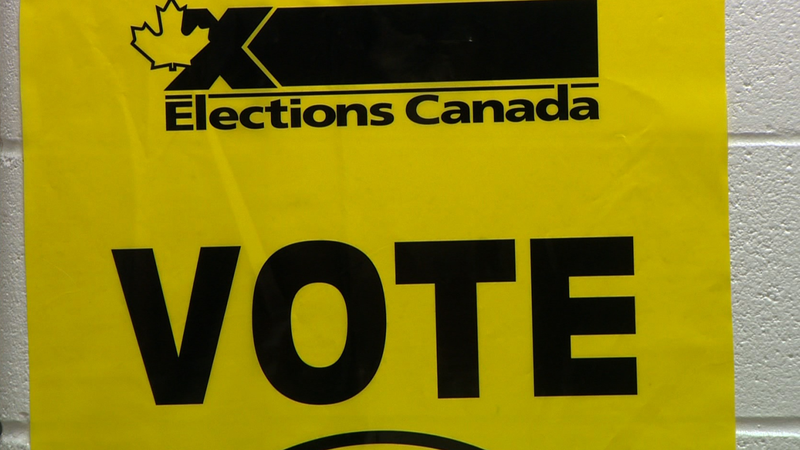German Elections: Your Last Chance To Vote For Change

Table of Contents
Understanding the German Election System
Navigating the German electoral system can seem complex, but understanding its core principles is crucial for informed participation. Germany employs a proportional representation system, meaning the number of seats a party receives in the Bundestag (the German parliament) roughly reflects its share of the national vote. However, it's not simply a case of straight proportional representation. The system uses a two-vote system:
- First Vote (Erststimme): You vote for a candidate in your local constituency. This determines the direct representatives for each constituency.
- Second Vote (Zweitstimme): You vote for a political party. This vote primarily determines the overall seat allocation in the Bundestag based on the national vote percentage. This is where the proportional representation aspect truly plays out.
A party needs to achieve at least 5% of the second vote (Zweitstimme) nationally, or win at least three direct mandates (Erststimmen), to gain representation in the Bundestag. This threshold ensures a stable parliamentary system, preventing the proliferation of small, niche parties. After the election, coalition governments are frequently formed, as it’s rare for a single party to achieve an absolute majority. This coalition-building process often involves negotiations and compromises among different parties to form a governing majority.
Key Issues Shaping the German Elections
Several key issues are shaping the narratives and platforms of the various political parties contesting the German elections:
- The German Economy: Economic growth, job creation, and social welfare programs are perennial concerns. Parties offer contrasting approaches to taxation, investment, and social security, reflecting differing economic philosophies.
- Climate Change Policy: Germany's commitment to reducing carbon emissions and transitioning to renewable energy sources is a major point of contention. Parties present diverse strategies, from ambitious targets and investments in green technologies to more moderate approaches.
- Social Justice: Issues of income inequality, affordable housing, and access to healthcare and education are central to many political platforms. Differing proposals for social welfare programs and tax policies reflect the various parties' approaches.
- Immigration Policy: Integration of immigrants and refugees continues to be a significant topic of debate. Differing opinions on asylum procedures, integration programs, and border controls are key distinctions between parties.
- Germany's Role in the European Union: The future of the EU and Germany's role within it is a crucial element of the political discourse. Differing views on European integration, fiscal policy, and foreign relations shape the parties' manifestos.
Each party's election manifesto provides detailed information on its position on these critical topics. Carefully reviewing these documents is essential to making an informed choice.
The Main Contenders and Their Platforms
Several major parties are expected to play significant roles in the German elections. Understanding their platforms is crucial to making an informed decision:
- [Name of major party 1]: [Brief party description, key policies, strengths, weaknesses].
- [Name of major party 2]: [Brief party description, key policies, strengths, weaknesses].
- [Name of major party 3]: [Brief party description, key policies, strengths, weaknesses].
It is imperative to look beyond simplistic summaries and delve into the specifics of each party's proposals to fully grasp the potential consequences of your vote. Analyzing recent poll data and election predictions can provide context, but remember that these are subject to change and should not be the sole basis for your decision.
How and Where to Vote in the German Elections
Exercising your right to vote is straightforward. Here's how to participate in the German elections:
- Voter Registration: Ensure your registration is up-to-date. Check with your local Bürgeramt (citizen's office) to confirm your registration status. Deadlines for registration vary, so confirm the exact date to avoid missing the opportunity to vote.
- Polling Stations: You'll receive information about your assigned polling station (Wahllokal) a few weeks before election day. This information is typically sent by mail. You can also find your polling station online through your local election office website.
- Election Day: On election day, present your identification and cast your two votes.
- Absentee Voting: If you are unable to vote in person on election day, you can arrange for absentee voting (Briefwahl). Check with your local election office for the specific procedures and requirements.
Conclusion: Your Voice Matters in the German Elections!
The German elections are a critical opportunity to shape the nation's trajectory for years to come. The issues discussed – the economy, climate change, social justice, and Germany's place in Europe – directly impact your life and the lives of future generations. Don't miss your chance to vote for change! Your vote is your voice, and your voice matters. Make sure your voice is heard in these crucial German elections. Find your polling station, register to vote if necessary, and cast your vote. Share this information with friends and family to encourage greater political participation. Make your voice heard! Visit [link to relevant voter registration website] to register or learn more.

Featured Posts
-
 Decarbonizing Steel Eramets Era Low Low Co 2 Manganese Alloy
May 14, 2025
Decarbonizing Steel Eramets Era Low Low Co 2 Manganese Alloy
May 14, 2025 -
 Liverpool Transfer News Latest On Dean Huijsen
May 14, 2025
Liverpool Transfer News Latest On Dean Huijsen
May 14, 2025 -
 Le Destin Brise De Deux Collegiens Et Leur Mere Expulses Sous Oqtf
May 14, 2025
Le Destin Brise De Deux Collegiens Et Leur Mere Expulses Sous Oqtf
May 14, 2025 -
 Pretzfeld Und Die Kirschbluete Ein Ausflug In Die Fraenkische Schweiz
May 14, 2025
Pretzfeld Und Die Kirschbluete Ein Ausflug In Die Fraenkische Schweiz
May 14, 2025 -
 Experience Chocolate Heaven At Lindts New Central London Store
May 14, 2025
Experience Chocolate Heaven At Lindts New Central London Store
May 14, 2025
